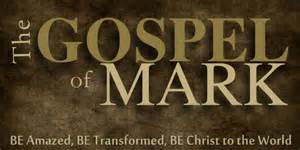The Heavens
In the beginning created God the heavens and the earth;
and the earth was without form and empty,
and darkness on the face of the deep;
and the Spirit of God was brooding on the face of the waters.
Then said God,
Let be light and was light.
And saw God the light that good (it was)
and separated God between the light and the darkness.
And called God the light Day. and the darkness He called Night;
and was the mixing and was the breaking forth time one.
flare
Fig2, a sun flare
The requirement for light to become visible from the reference of the earth's surface is for the atmosphere above the earth to go from opaque to at least a partially translucent condition and rotation of the planet is required for the periodic day and night cycle. If the atmosphere was only partially translucent so that little light would be admitted to the surface, the diffusion of the light would not allow the moon and stars to be visible, and the sun, if visible at all, only as a slightly brighter area in the sky.
For a detailed description of the reason for the substitution of "time" for day, "the mixing" for evening and "the breaking forth" for morning read "Days of Genesis" Use the browser "back" function to return to this page.
And said God,
Let be an expanse in the midst of the waters,
and let it (be) dividing between waters (and) the waters.
And made God the expanse,
and He separated between the waters which (were) under the expanse,
and the waters which (were) above the expanse,
and it was so.
And called God the expanse Heavens;
and was the mixing and was the breaking forth time second.
earth
Fig 3, the earth with its clouds and oceans
As the earth's atmosphere is clearing and transmitting more light resulting in more heating of the surface, there would be changes in the nature of the atmosphere. There has been many theories proposed concerning the "waters above", but the fact is, this could just simply be the hydrological cycle forming that we presently have with large amounts of waters contained in clouds at various heights above the earth. A very unique atmosphere for our solar system, no other planet has a atmosphere that is in any way similar to the one on our earth. The forming of the atmosphere of a planet would seem to be controlled by the following conditions.
1. Distance from Sun (surface temperature of planet)
2. Mass and radius of planet = surface gravity = gas escape velocity
3. chemical reactions = different molecules are created and destroyed in various environments, higher temperatures mean faster reactions
4. geological activity = amount of out gassing, more activity = more out gassing = thicker atmosphere
5. living organisms = change the composition through their waste products
All of the above factors had to be delicately balanced by the Designer to achieve the marvelous ecosystem that we presently live in.
And said God,
Let be collected the waters under the heavens to place one,
and let appear the dry land; and it was so.
And called God the dry land Earth,
and the collection of the waters He called Seas,
and saw God good (it was).
And said God,
Let sprout the earth tender sprouts (the) herb seeding seed,
(and) tree of fruit producing fruit after its kind,
which it (is) in it on the earth;
and it was so.
And bore the earth tender sprouts (the) herb seeding seed after its kind,
and tree producing fruit which its (is) in it after its kind;
and saw God that (it was) good.
And was the mixing and was the breaking forth time third.
As per factor 5 above, living organisms are an important part of the development cycle for the atmospheric part of the heavens.
Fig 4 , the atmosphere
And said God,
Let be luminaries in the expanse of the heavens to divide between the day
and the night and let them be for signs,
and for seasons and for days and years;
and let them be for luminaries in the expanse of the heavens,
to give light on the earth;
and it was so.
And brought forth God, two the luminaries great;
the luminary great for the rule of the day,
and the luminary small for the rule of the night,
and the stars.
And appointed them God in the heavens to give light on the earth,
and to rule over the day and over the night,
and to separate between the light and the darkness;
and saw God that good (it was).
And was the mixing and was the breaking forth time the fourth.
moon stars
Fig 5, the moon
-- Fig 6, stars and comet
For all the elements of the sky to be fully visible from the surface it is necessary for the atmosphere to complete its development and become in the main part transparent. Except for the frequent cloudy and stormy conditions, of course.
The concept of the "greater light to rule the day" and "the lesser light to rule the night" affirms the surface of the earth as the reference point for the creation record. This concept is appropriate only from or within a relatively limited distance from the surface of the earth. From the outer heavens (space) the lesser light becomes only another rather minor planetary object of our solar system which only reflects the light of the sun. From the majority of all other possible reference points in our small solar system the sun rules! From outside our solar system both become rather minor objects of this expansive universe.
Conclusion: By substituting fully acceptable translations for Strong's #6213 'asah", "brought forth" for "made", and Strong's #5414 "nathan", "appointed" for "set", we believe we have a translation that is more in line with the true meaning of the Hebrew Masoretic text. See the Appendix for details, and note that instead of having a very limited leeway for translation, the Hebrew words of interest have a very great range of acceptable English meanings.
( To view a revised translation of chapter 1 and a paraphrase take a look at -[1]- Use the browser "back" function to return to this page.)
Appendix A: Extracts from "The Interlinear Bible" and Strong's "Hebrew and Chaldee Dictionary".



 bi
bi